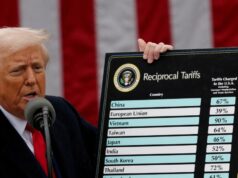What were the key takeaways from Prime Minister Narendra Modi’s visit to Poland and Ukraine August 21-23?
That was the question we posed to Ambassador Kanwal Sibal, former foreign secretary and ambassador to Russia, France, Egypt, Turkey and DCM and Washington. D.C.
Modi was the first Indian Prime Minister to visit Poland in 45 years, and the first ever to visit Ukraine.
Clarifying that he did not know whether Modi went to Poland because it is the only way to get to Ukraine, or whether he had a trip to Poland in mind regardless of his onward trip to Ukraine, Sibal said the view “that India has neglected this relationship with this part of Europe is not quite true.”
Everything can’t be judged on the basis of a visit by the prime minister, he said, noting that “our President has gone (to Poland), our foreign minister has been there, and their Presidents and foreign ministers have come to India…”
“A Russian twist has been given to this, which is frankly absurd,” he added. “To say that no prime minister has been there in 45 years, while three prime ministers visited it when Poland was a part of the Soviet Union, that is a different matter, but to say this was due to Russian sensitivities is absolutely wrong,” he said.
“As far as Ukraine is concerned, there were many reasons for his visit,” he said. “The first is that Prime Minister has been meeting Zelenskyy who has pressing him to visit. We have not swallowed the American strategy on Ukraine when there was pressure on us to invite him to the G20 summit in New Delhi.
“Two, if our prime minister has been counselling dialogue and diplomacy, and took pride in the fact that he told Putin in front of his face that this was not an era of war and that you cannot find solutions on the battlefield, and expressed a lot concern over the death of children in war, then it was necessary to balance our credentials,” he said. “If we believe in dialogue and diplomacy, then we must talk to all sides.”
“There has been a lot of pressure from the west, and by going to Ukraine, the Prime Minister has taken the west off our backs,” he argued.
“Now, having done that, and the manner in which Zelenskyy has reacted, his (PM Modi’s) hands are a little free. He can now deal with Russia without worrying about what the west may think.
“because he can now say that I went to Ukraine, and I engaged with Zelenskyy, I talked peace to him, I told (Zelenskyy) him that your agenda will not work, because there are other views, other proposals, other ways of addressing this conflict. We need all stakeholders to be a part of this diplomacy process, and the solution you are suggesting is not necessarily the only one.”
To understand how this visit also reinforced India’s attempt to be a leader of the Global South, whether the Western hope that this visit would create some wrinkles in the India-Russia relationship is tenable, and whether New Delhi can really hope to or should ‘mediate’ in the conflict, watch the full interview.
In a career spanning three decades and counting, Ramananda (Ram to his friends) has been the foreign editor of The Telegraph, Outlook Magazine and the New Indian Express. He helped set up rediff.com’s editorial operations in San Jose and New York, helmed sify.com, and was the founder editor of India.com.
His work has featured in national and international publications like the Al Jazeera Centre for Studies, Global Times and Ashahi Shimbun. But his one constant over all these years, he says, has been the attempt to understand rising India’s place in the world.
He can rustle up a mean salad, his oil-less pepper chicken is to die for, and all it takes is some beer and rhythm and blues to rock his soul.
Talk to him about foreign and strategic affairs, media, South Asia, China, and of course India.




